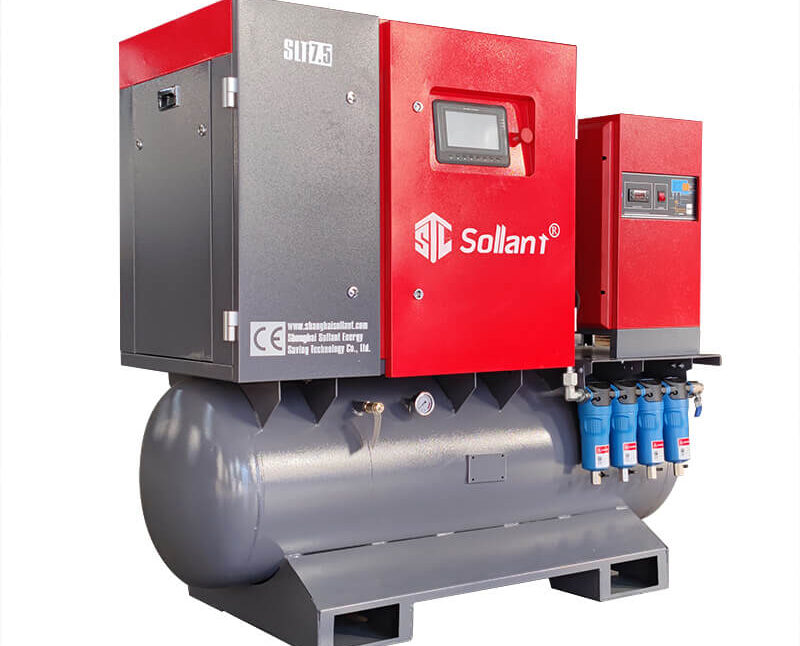The choice between a single-screw air compressor and a twin-screw air compressor will depend on several factors, including the specific application, compressed air requirements, and budget. Here are some advantages of each type of compressor:
Advantages of single-screw air compressors:
1.Lower initial cost: Single-screw air compressors are typically less expensive to purchase than twin-screw air compressors.
2.Lower maintenance costs: Single-screw air compressors have fewer moving parts than twin-screw air compressors, which can result in lower maintenance costs.
3.Suitable for low-pressure applications: Single-screw air compressors are ideal for applications that require lower pressures, typically up to 8 bar.
4.Compact size: Single-screw air compressors are typically smaller and more compact than twin-screw air compressors, making them ideal for use in small spaces.
Advantages of twin-screw air compressors:
1.Higher efficiency: Twin-screw air compressors are more efficient than single-screw air compressors, meaning they can deliver more compressed air using less energy.
2. Suitable for high-pressure applications: Twin-screw air compressors can deliver compressed air at higher pressures than single-screw air compressors, typically up to 13 bar.
2.More stable output: Twin-screw air compressors provide a more stable output than single-screw air compressors, resulting in more consistent compressed air delivery.
4. Better suited for continuous operation: Twin-screw air compressors are designed for continuous operation and can handle heavy-duty applications.
In summary, the choice between a single-screw air compressor and a twin-screw air compressor will depend on the specific requirements of the application. Single-screw compressors are ideal for low-pressure applications and have lower initial and maintenance costs, while twin-screw compressors are more efficient, suitable for high-pressure applications, and can handle heavy-duty continuous operation.
Sollant Focus on Energy Saving



